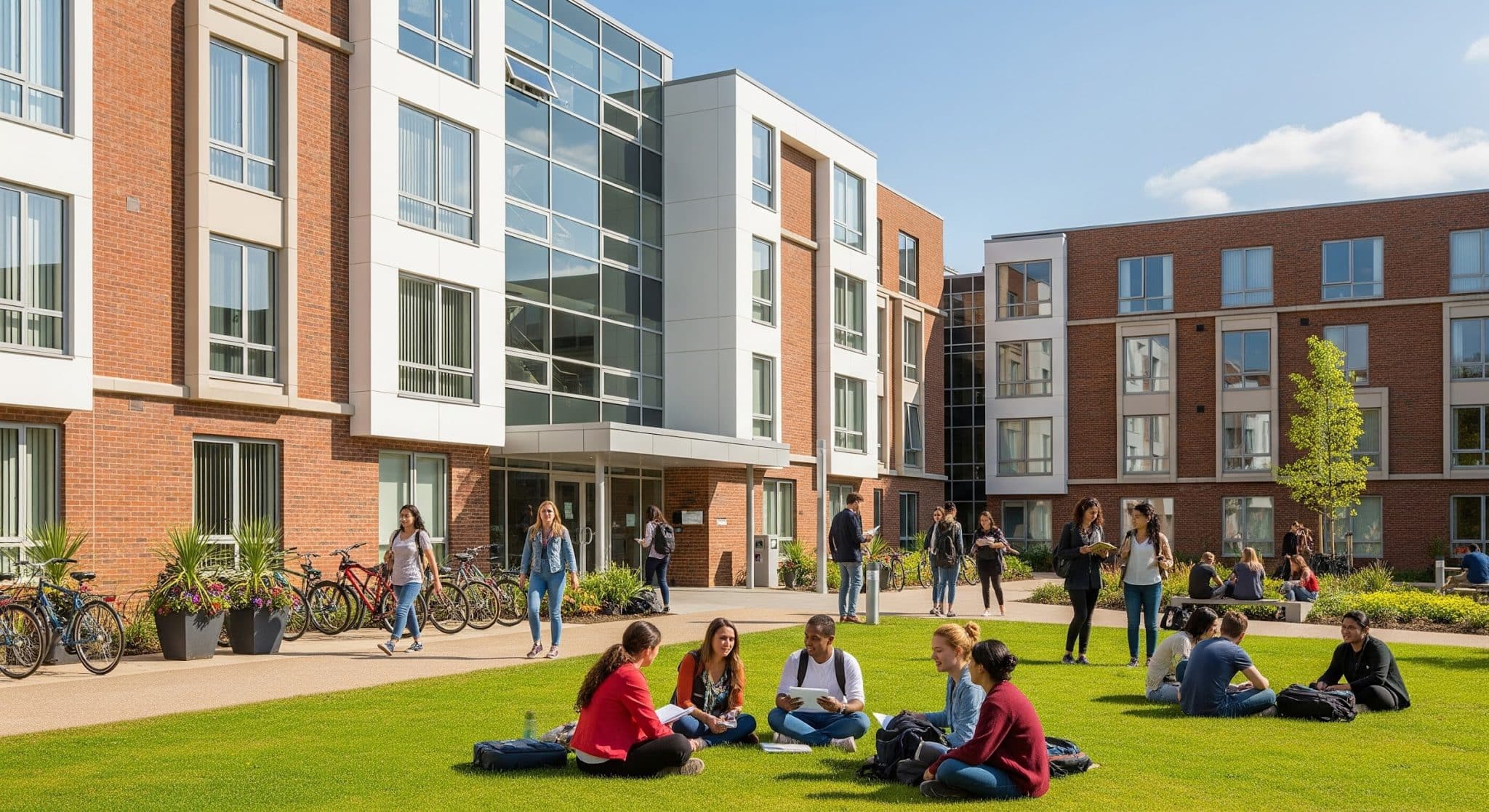Redefining Student Living: The Future of Campus Housing
University residences have transformed from simple dormitories into complex living-learning environments. Today’s students demand spaces that foster community while supporting digital lifestyles, with amenities rivaling premium apartments. This shift has made student housing projects among the most challenging in the construction sector, requiring specialized expertise to balance academic needs with residential expectations.
The margin for error is slim. Well-designed housing attracts top applicants and generates stable revenue, while poor planning leads to vacancies and costly renovations.
The Advisory Difference
Engaging student housing construction consultancy early creates a strategic advantage that resonates throughout a project’s lifecycle. These specialists understand the nuanced requirements of academic communities that conventional developers often miss. Their campus-specific knowledge informs everything from unit layouts to material selections, ensuring designs meet both immediate needs and long-term institutional goals.
During programming phases, they facilitate difficult conversations about competing priorities, privacy versus socialization, durability versus comfort, innovation versus maintainability. This mediation prevents costly redesigns after construction begins.
Creating Spaces That Work
Modern student living demands thoughtful spatial solutions. Advisory teams analyze how physical environments impact academic performance and social development. They advocate for flexible common areas that accommodate both group study and casual interaction, with acoustic treatments that allow simultaneous quiet reflection.
Unit configurations balance personal space with community building, moving beyond traditional double-loaded corridors to innovative layouts that encourage organic interaction. Every square foot serves multiple purposes in their designs.
Financial Realities
University projects operate under unique budgetary constraints that require creative solutions. Consultants develop financial models accounting for academic timelines and fundraising cycles, helping institutions maximize limited capital.
Their value engineering identifies savings without compromising quality, perhaps through standardized bathroom modules or strategic material substitutions. More importantly, they demonstrate how upfront investments in energy efficiency or durable finishes yield decades of operational savings.
Navigating Institutional Complexities
Campus construction occurs within ecosystems of competing interests and bureaucratic processes. Experienced advisors help align stakeholders by translating between academic priorities and construction realities. They anticipate concerns about historic preservation, green space impacts, and operational disruptions, developing solutions that satisfy diverse constituencies.
Their approval strategies account for academic calendars, ensuring projects meet critical deadlines for student move-ins. This institutional fluency prevents the delays that plague many university projects.
Sustainable by Design
Student housing offers unparalleled opportunities to demonstrate environmental stewardship. Advisory teams integrate sustainability at every level, from energy-efficient building envelopes to visible recycling systems that educate through daily use.
They specify materials that withstand heavy use while maintaining indoor air quality, creating healthy environments that support student wellbeing. Renewable energy systems often become living laboratories, with real-time data displays that reinforce sustainable behaviors.
Technology for Community Building
While students expect seamless connectivity, advisors caution against technology for technology’s sake. They recommend infrastructure that supports thousands of devices without unnecessary complexity. Smart building systems balance convenience with privacy concerns, ensuring data collection serves educational purposes.
Common area technologies encourage in-person interaction rather than isolation, think collaborative screens instead of individual pods. This intentional approach creates digitally-enabled communities rather than disconnected individuals.
Measuring Success
Truly successful projects consider long-term outcomes beyond construction completion. Advisory teams implement assessment tools that track student satisfaction with spatial functionality, staff efficiency in facility management, and actual versus predicted energy performance. These metrics inform continuous improvement, helping institutions refine future housing projects based on empirical data rather than assumptions.
The Strategic Imperative
In an era of declining enrollments and increased competition, housing quality directly impacts institutional reputation and revenue. Projects guided by specialized advisors consistently achieve higher occupancy rates, lower operating costs, and superior student satisfaction scores.
Forward-thinking universities now view housing consultancy not as an added expense, but as essential insurance against costly mistakes, and as an investment in their most important asset: student success.
Because when it comes to shaping the environments where future leaders live and learn, every design decision carries consequences far beyond the construction site.








